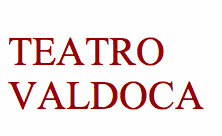Teatro Valdoca
Настоящее имя: Teatro Valdoca
The Valdoca Theatre company – founded in the early eighties - is the result of the collaboration between Cesare Ronconi, director, and Mariangela Gualtieri, poet and playwright.
Born as a collective, the Collettivo Valdoca was a music and theatre company whose members had no defined roles. The two founders' interest for theatre developed in the seventies, when, thanks to a grant, Ronconi and Gualtieri came in contact in Poland with Kantor's works before his company, Cricot, came to Italy, participated in Wroclaw in the unforgettable Tree of People by Grotowski’s Laboratory Theatre and attended the play Apocalypsis cum Figuris performed by Grotowski’s group of actors. In the same period, in the US, they came to know the experiences of Peter Shumann with his Bread and Puppet Theater and the works of Bob Wilson, Richard Foreman and the Squat Theatre, recently arrived from Hungary.
For the founders, however, the most surprising figure and most important point of reference was already then Carmelo Bene. Those years were characterised by a strong restlessness whose outlets were solitary travels around the world (Brazil, Burkina Faso, Spain, North America) and a long stay of the whole company in a small village in Tanzania. Since its beginnings, the company collaborated closely with the most appreciated artists of the time: mainly painters, sculptors, composers and musicians. A particular care was also devoted to the sound amplification set-up.
In 1985 Valdoca, after meeting the poet Milo De Angelis, founded a Poetry School directed by him. Through the school, during its three editions, the company met with the major Italian poets: Fortini, Luzi, Bigongiari, Loi, Cucchi, Sicari, Rosselli, Merini, Majorino and others. It’s after these meetings and as a result of other defining personal experiences that Mariangela Gualtieri started writing verses, suspending her role as actress and acquiring that of playwright, while Cesare Ronconi coupled his direction with an unbroken pedagogical activity which would allow him to train directly its actors and dancers.The most distinctive trait of Valdoca's poetic is the epic character of its actors, always reaching for the super-human and the sub-human, thus stretched between hero and divinity on one side and animality, infancy and deformity on the other; by their renounce to a narrative, to social themes, current affairs and news. The actor, then, is often a dancing body, whose voice, movement and stillness is heavily loaded with expressivity. Beside the decisive role of the actor, there’s the peculiarity of the word given to him: a word that’s always poetic verse, unprecedented, fitting with the written direction, a verse often written in close proximity to the stage and to the demands of direction. The frequent presence of live music, the attention to the scene’s present, the simplicity of the projects, together with the characteristics mentioned above, transform the company’s performances into events loaded with ritual qualities, where the interplay between the scene's forces and energies lead the audience inside the experience of its vision and convert the public into a participating and listening community.
